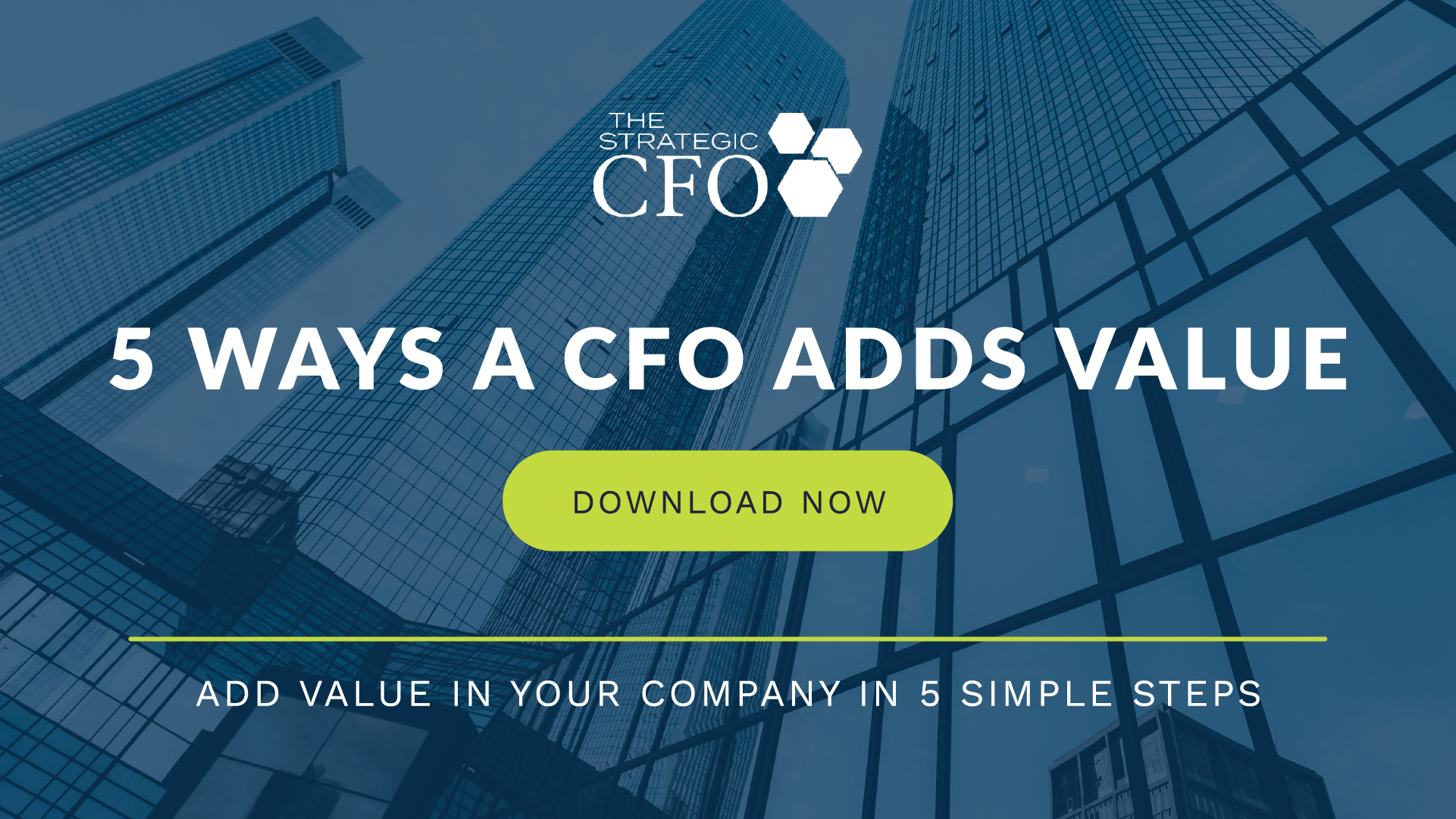Back in the day, month end reports consisted of a income statement, balance sheet, and maybe a cash flow statement. These are the three statements that made up your financial statements for month end reporting. As technology advanced and people got smarter about tracking trends, analysis, and operations today, the month end report includes much more. In this week’s blog, I answer the question, what should your month end reports contain?.
We should not think of the month end report as just your financial statements. Just as the role of the accounting department and the role of the CFO continues to evolve, so should the month end report. The month end report should be a management report that captures key data that will be used to make decisions and drive the business. It should include much more than just your financial statements.
[box] In today’s world, the CFO does so much more that count beans. They add real value to the company. Learn about the 5 Ways a CFO Adds Value. [/box]
What Should Your Month End Reports Contain?
The month end report should include the financial statements. But they should also include operational data, metrics, and dashboards that are both usable and meaningful. Remember, whatever data is provided should be used to make decisions.
In general, for a manufacturing facility your month end report might include the following:
- Income Statement
- Balance Sheet
- Cash Flow Statement
- Plant Throughput
- Labor Hours/Product Produced
- Downtime
- Capacity %
- Average Cost
- Gross Margin Analysis (trailing twelve months)
- Delivery Targets (on time delivery)
- Inventory Turnover
- Days Sales Outstanding
- Days Payable Outstanding
- Working Capital Analysis
- Debt/EBITDA Ratio
I would argue that the above list is the bare minimum for month end reporting. Depending on your organization, you may have many other indicators that must be tracked at month end.
[box] Having the right indicators will help you make better decisions and add real value to the firm. Access our 5 Ways a CFO Adds Value whitepaper to learn add value in 5 simple steps. [/box]
“Analysis Paralysis”![what should your month end reports contain]()
Be careful though… Providing meaningful useful information at month end does not mean overkill with useless data. Time and time again I see businesses adopt dashboards and metrics, but they go to the other extreme and enter into analysis paralysis. What should your month end reports contain? Not so much that there is an overload of information that cannot be used effectively or at all.
Example of Analysis Paralysis
Allow me to give you an example… If you manufacture valves, your revenue is $10 million per month, and your related EBITDA per month is $1.5 million, then does it really make sense to track an expense line item that is $500? I would argue no. It costs you more time and money to track that item individually. If you do track it, then having that data will not lead to big decisions that are meaningful. All expenses and revenue line items are important, but that does not mean you need to track and analyze every penny. If you are a huge company and have a very expensive system that does all this automatically, then good for you.
There is a famous quote that I have used before, “a small leak sinks great ships.” I truly believe that. We do not want to have a small expense item that over time is a problem. But this blog is intended for your standard monthly close reporting and assumes you have your business in order so that you capture and put a stop to those small leaks.
Efficiency
The month end report should not be a binder 4 inches thick. The ideal financial report at month end should be one that the executive team can review in one hour and get a good feel for where the company is and where it is going. This will vary from company to company. In general, the report should be detailed enough to capture the most important items to make decisions, but condense enough so the management team does not spend a full day reading a large binder. Again, this will vary company to company. Some CEOs want the large binder, and that’s fine. Follow your CEO’s request.
The CFO and the accounting department are responsible for gathering this data working hand in hand with the operations. That is why I preach that a good CFO is actually someone that has a very good understanding of the operation. The Controller should also be someone that understands the operation. Furthermore, the CFO and the Controller should understand both the operation and the operating metrics. The CFO must full understand and interpret the operating dashboards and metrics before this information is passed on to the CEO.
[box] When a CFO has a good understanding of the entire business, they are able to be more effective in their role. Learn about the 5 Ways a CFO Adds Value to take your role to the next level. [/box]
In Summary
In summary, your month end report should capture more than just your financial statements. It should also capture the following:
- Capture key operational data
- Capture information that is useable to make meaningful decisions
- Key metrics and dashboards for your business and industry
- Keep it short and sweet so the executive team can review this report in an hour or less
- Careful not to overanalyze
If you want to add more value to your company, creating a great month end report is a good start. Learn 5 other ways to add value as a CFO with our 5 Ways a CFO Adds Value whitepaper.
Access your Strategic Pricing Model Execution Plan in SCFO Lab. The step-by-step plan to set your prices to maximize profits.
Click here to access your Execution Plan. Not a Lab Member?
Click here to learn more about SCFO Labs [/box]



























